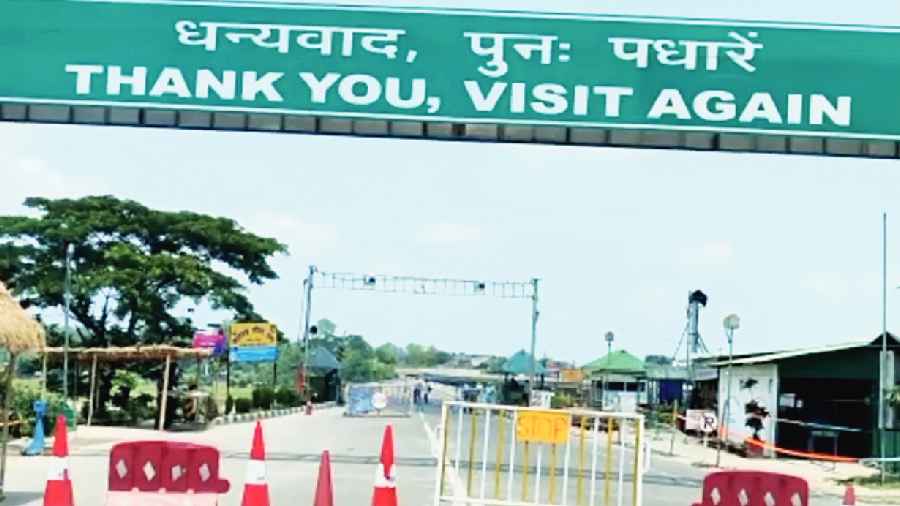A decision by the Nepal government to halt movement along the India-Nepal border for three days from Wednesday has left the traders of Panitanki, the market located in Siliguri subdivision some 35km from here on the border, to start counting losses.
The border has been closed by the government of Nepal for the Friday elections of the civic bodies of Nepal.
“For free and fair elections of the local bodies, an order has been issued to close the border of Jhapa district (of Nepal) which connects to the Indian border (at Panitanki),” said an official of the district administration of Jhapa.
In Nepal, civic polls were held for the first time in 2017. On Friday, the second elections would be held in 753 local bodies, which include six metropolitan cities, 11 sub-metropolitan cities, 276 urban municipalities and 460 rural municipalities.
Altogether, 35, 221 representatives would be elected in these civic bodies through the elections and seventy-nine different political parties have fielded candidates at the polls.
Dipak Chakraborty, the joint secretary of Panitanki Byabsayee Samiti, said ahead of the pandemic, goods worth around Rs 5 crore were sold from Panitanki market every day. About 80,000 Nepali people would cross the Mechi river bridge to enter India to buy an array of products, ranging from groceries and household items to building materials, electronic goods and garments.
“There are over 1,200 shops in Panitanki but during the pandemic, movement of people had stopped along the border and our business had dried up. It has just started reviving during but the daily sale is now around Rs 1.5 crore. We are already reeling under losses and this sudden closure in movement for three days has further hit us,” said Chakraborty.
In Panitanki, the movement of people between India and Nepal was closed from April 2020 to August 2021. In September last year, the governments mutually decided to reopen the border.
Chakraborty added that because of depleting foreign exchange reserves, Nepal recently restricted imports of non-essential items.
“This has also impacted us in the market as fewer people from Nepal are turning up and barely 300 shops open in Panitanki now. The traders are worried whether they will meet the same fate as Jaigaon,” he added.
Jaigaon in Alipurduar district on the India-Bhutan border has been one of the economically worst-hit areas of Bengal amid the pandemic.
Since March 2020, the Bhutan government stopped free movement of people along the border. As a result, the local trade in Jaigaon has dried up and many traders were forced to sell their shops and godowns and have left the town.











